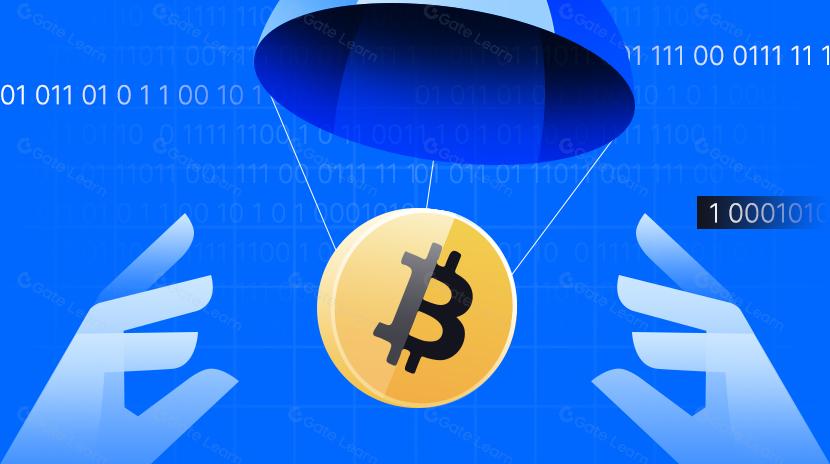Gate Research: VanEck Files for Lido Staked Ethereum ETF | Greenlane Launches BERA Treasury Strategy
Crypto Market Overview
- BTC (+1.96% | Current Price: 110,160 USDT): Over the past 24 hours, the cryptocurrency market has seen a significant recovery, with total market capitalization returning to around $3.87 trillion, a single-day increase of approximately $150 billion. Bitcoin broke above the $111,000 mark, rising nearly 2% intraday, with bullish sentiment clearly returning. From a technical perspective, Bitcoin’s daily candlestick chart shows three consecutive bullish candles, and the MACD bearish crossover has further narrowed, indicating weakening bearish momentum and gradual dominance of bulls. The price has successfully surpassed the 5-day moving average (MA) and found support near the 10-day MA. If it holds this level, there is potential for further upward movement. Overall, this rebound is closely related to positive macro news—markets expect two major global economies to reach a fair trade agreement within the coming week, easing risk-off sentiment. Bitcoin’s medium-term trend remains bullish; if short-term momentum continues, it may test the 30-day MA around $114,500. If upward momentum weakens, a pullback toward the $109,000 range for consolidation is possible.
- ETH (+0.51% | Current Price: 3,957 USDT): Over the past 24 hours, Ethereum has been trading in a narrow range of $3,917–$4,082, showing a gentle upward trend. The MACD bearish crossover is almost neutral, indicating that bearish momentum has significantly weakened. The price has broken above the 5-day MA and is challenging the 10-day MA near $4,002. The 4-hour chart shows Ethereum in a descending wedge pattern, formed after a failed breakout above $4,200 followed by a strong pullback. The price has repeatedly encountered resistance at the intersection of upward and downward trendlines, indicating a short-term tug-of-war between bulls and bears. The 100-day MA, which previously provided dynamic support, has now turned into resistance near $4,100. Currently, Ethereum remains in a consolidation range between structural support and resistance, but the price is above key institutional buying zones. If it breaks above the descending trendline and holds above the $4,000–$4,100 resistance area, a phase reversal could be confirmed, with a target range of $4,400–$4,600. Conversely, a break below the $3,700 support may trigger further downside risk toward $3,400.
- Altcoins: The cryptocurrency market shows clear divergence. Bitcoin remains the strongest among major assets, while most altcoins have experienced minor pullbacks, forming a “leading Bitcoin, pressured altcoins” pattern. The Fear & Greed Index has warmed further to 38 compared with yesterday, suggesting reduced selling pressure and cautious capital inflows. If Bitcoin continues its upward momentum in the short term, the altcoin sector may see a catch-up rally, but investors should watch for capital rotation and structural market risks.
- Macro: On October 20, the S&P 500 rose 1.07% to 6,735.13, the Dow Jones increased 1.12% to 46,706.58, and the Nasdaq gained 1.37% to 22,990.54. As of 2:00 AM (UTC) on October 21, spot gold is trading at $4,345 per ounce, down 0.4% in the past 24 hours.
Trending Tokens
AVNT – Avantis (+54.3%, Market Cap: $148M)
According to Gate market data, the AVNT token is currently priced at $0.72, up 54.3% in the past 24 hours, reaching a high of $0.75 and a low of $0.47. Market capitalization increased by approximately $40.5 million compared with yesterday. Avantis, a derivatives exchange, supports both physical and crypto asset trading. Its native token, AVNT, serves both utility and governance purposes, including protocol incentives, trading rewards, and community development. The platform offers features such as loss protection and positive slippage optimization, and empowers developers via the Avantis SDK to access real-time price feeds and trading management tools, forming a relatively complete derivatives ecosystem.
AVNT’s recent surge is driven by two key factors. First, the AVNT/USDT perpetual contract (up to 20x leverage) was launched on a decentralized perpetual exchange, expanding trading channels and improving market liquidity. Second, the growing demand for derivatives trading is considered a major driver behind this price rally. Overall, AVNT’s rise reflects market optimism toward the derivatives ecosystem, but short-term volatility remains high, and investors should be cautious of potential pullbacks.
TREE – Treehouse (+15.2%, Market Cap: $28.77M)
According to Gate market data, TREE is currently trading at $0.18, up 15.24% over the past 24 hours, with a high of $0.24 and a low of $0.15. Market capitalization increased by $6.69 million compared with yesterday. Treehouse is a decentralized fixed-income infrastructure layer that connects yield primitives, benchmark rates, and participant layers to build a unified fixed-income ecosystem. Its core products include tAssets and the Decentralized Quote Rate (DOR). tAssets provides enhanced yields through rate arbitrage, while DOR serves as a benchmark for on-chain fixed-income products.
TREE’s price increase is driven by two factors. On one hand, growing interest in Merkle tree technology and Lightning Network scaling solutions has boosted attention to underlying infrastructure projects. On the other hand, increasing market demand for stable-yield DeFi products highlights Treehouse’s potential and scarcity in the decentralized fixed-income space. From a technical perspective, TREE has broken past resistance levels, showing strong short-term upward momentum.
BIO – Bio Protocol (+16.6%, Market Cap: $170M)
According to Gate market data, BIO is currently priced at $0.09572, up 16.6% in the past 24 hours, reaching a high of $0.12 and a low of $0.08. Market capitalization increased by approximately $57.1 million compared with yesterday. Bio Protocol is a new financial layer in the DeSci (decentralized science) space, aiming to accelerate the commercialization of scientific results through decentralized mechanisms. The protocol allows research institutions, enterprises, and scientists worldwide to tokenize, fund, and manage scientific innovations, facilitating the application of medical and specialized research outcomes.
BIO’s recent price rise is mainly driven by project fundamentals and increasing market attention. Bio Protocol completed a new funding round with support from well-known investor Arthur Hayes’ Maelstrom Fund, boosting confidence in its potential. Additionally, the DeSci sector continues to heat up, and the application of DAO governance in scientific research has sparked widespread discussion, further enhancing Bio Protocol’s industry status and investment appeal, serving as a key driver behind the BIO token’s increase.
Alpha Insights
VanEck Files for Lido Staked ETH ETF
On October 20, ETF issuer VanEck officially submitted an S-1 registration statement to the U.S. Securities and Exchange Commission (SEC) for the “VanEck Lido Staked ETH ETF.” The fund aims to allow investors to earn Ethereum staking rewards through stETH tokens staked via the Lido protocol.
As the largest liquid staking protocol in the Ethereum ecosystem, Lido currently boasts substantial locked value (TVL) and wide market recognition. VanEck’s ETF filing marks a further integration of DeFi infrastructure into the traditional financial system. From a market perspective, this move carries multiple positive implications. First, the SEC’s regulatory stance on liquid staking tokens has gradually clarified, indicating that under certain conditions such assets may not be classified as securities. This ETF filing aligns with this regulatory backdrop and could serve as an important reference for approval of similar products. Second, if approved, the ETF would significantly enhance the position of ETH and its staked assets (e.g., stETH) in institutional portfolios, enabling traditional investors to access ETH staking yields through a regulated channel. This transforms ETH from a purely price-driven asset into a yield-bearing asset, accelerating mainstream adoption of crypto assets. Finally, Kean Gilbert, Head of Institutional Relations at the Lido Foundation, stated that the filing signals growing recognition of liquid staking as a core component of Ethereum infrastructure. Lido’s success demonstrates that decentralized mechanisms and institutional-grade standards can coexist, laying a solid foundation for broader crypto financial innovation.
Major Asset Managers Open Bitcoin and Ethereum ETPs to UK Retail Investors
Asset managers 21Shares, Bitwise, and WisdomTree have received approval from the UK Financial Conduct Authority (FCA) to offer their Bitcoin and Ethereum exchange-traded products (ETPs) to retail investors in the UK for the first time—previously, these products were only available to professional investors.
Currently, 21Shares has launched two physically-backed BTC and ETH ETPs on the London Stock Exchange (LSE), with the Ethereum product offering staking yields and some products featuring fees as low as 0.1%. WisdomTree simultaneously launched physically-backed BTC and ETH ETPs with fees of 0.15% and 0.35%, respectively. Bitwise plans to launch similar products this Tuesday, initially reducing Core Bitcoin ETP fees to 0.05% for the first six months.
This development comes just 12 days after the FCA formally lifted a four-year retail ban on crypto ETNs, signaling a major regulatory easing for crypto investment products in the UK. The change not only opens the crypto ETP market to mainstream investors but also aligns the UK with more open jurisdictions such as the U.S., Europe, and Hong Kong. Industry observers expect the FCA to finalize a comprehensive crypto regulatory framework covering stablecoins, exchanges, lending, staking, and custody by 2026. This move is seen as a key step toward mainstreaming and institutionalizing crypto assets in the UK, laying the groundwork for the integration of traditional and crypto finance.
Greenlane Holdings to Raise $110M to Launch BERA Treasury Strategy
Greenlane announced plans to raise approximately $110 million through a private investment in public equity (PIPE), with around $50 million in cash and roughly $60 million contributed via BERA tokens. The funds will be used to launch the “BeraStrategy,” designating BERA—the native token of the Berachain blockchain—as the company’s primary treasury reserve asset, purchased through both public markets and over-the-counter trades. The fundraising is expected to complete by October 23, 2025. Following the announcement, Greenlane’s stock surged about 45%.
By selecting BERA as its main reserve asset, Greenlane demonstrates a trend of integrating traditional corporate treasuries with blockchain tokens. This represents a major endorsement for BERA itself and enhances market recognition, liquidity, and valuation expectations for the token. Through the blockchain + treasury strategy, Greenlane may attract more crypto-focused investors; however, risks remain. Concentrating reserves in a single token increases exposure risk, while the PIPE fundraising dilutes shares, making it important to monitor the completion of the fundraising and execution of the treasury strategy.
References
- Gate, https://www.gate.com/trade/BTC_USDT
- Farside Investors, https://farside.co.uk/btc/
- Gate, https://www.gate.com/trade/ETH_USDT
- Investing, https://www.investing.com/currencies/xau-usd
- Theblock, https://www.theblock.co/post/375250/21shares-bitwise-blackrock-wisdomtree-uk-retail-bitcoin-ethereum-etps-fca
- Lido, https://blog.lido.fi/vaneck-files-for-lido-staked-eth-etf/
- Access Newswire, https://www.accessnewswire.com/newsroom/en/blockchain-and-cryptocurrency/greenlane-holdings-inc-announces-110-million-private-placement-to-ini-1089337
Gate Research is a comprehensive blockchain and cryptocurrency research platform that provides deep content for readers, including technical analysis, market insights, industry research, trend forecasting, and macroeconomic policy analysis.
Disclaimer
Investing in cryptocurrency markets involves high risk. Users are advised to conduct their own research and fully understand the nature of the assets and products before making any investment decisions. Gate is not responsible for any losses or damages arising from such decisions.
Related Articles

Exploring 8 Major DEX Aggregators: Engines Driving Efficiency and Liquidity in the Crypto Market

What Is Copy Trading And How To Use It?

What Is Technical Analysis?

How to Do Your Own Research (DYOR)?

12 Best Sites to Hunt Crypto Airdrops in 2025
